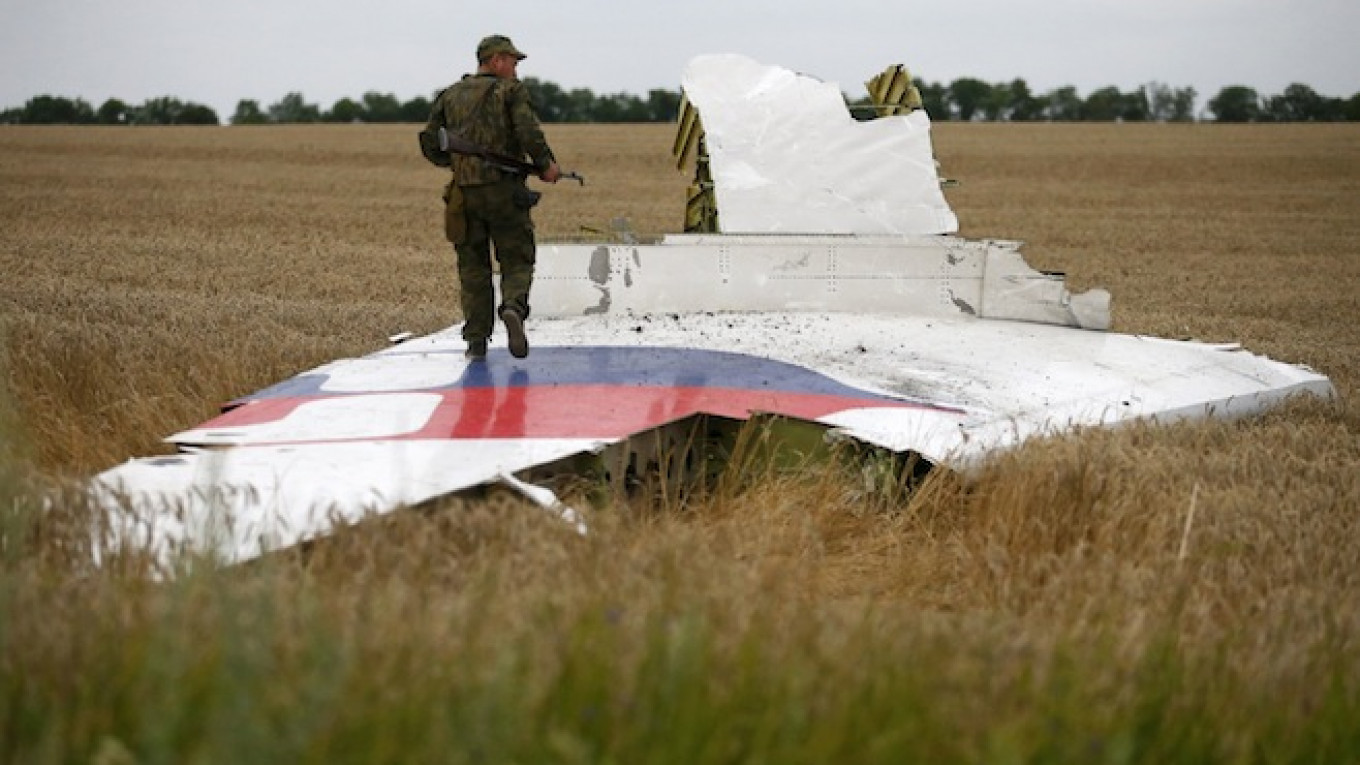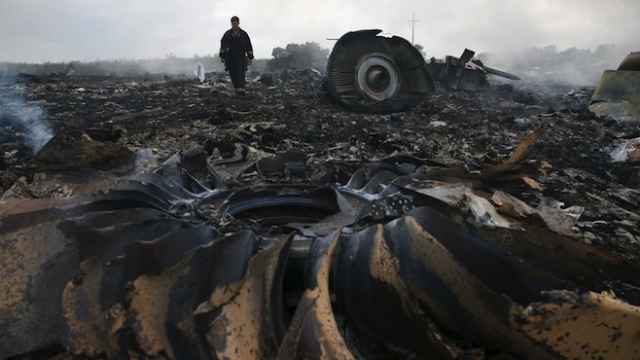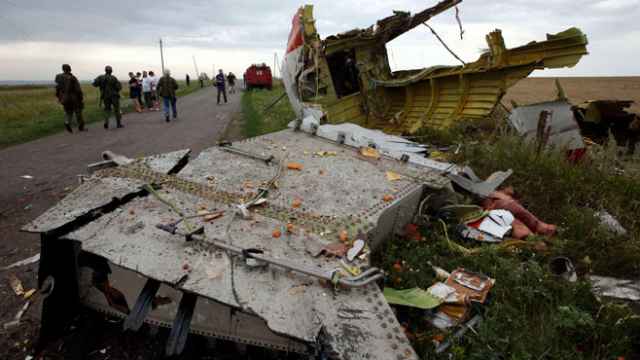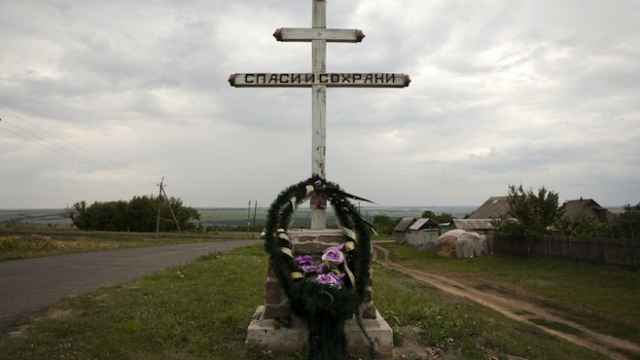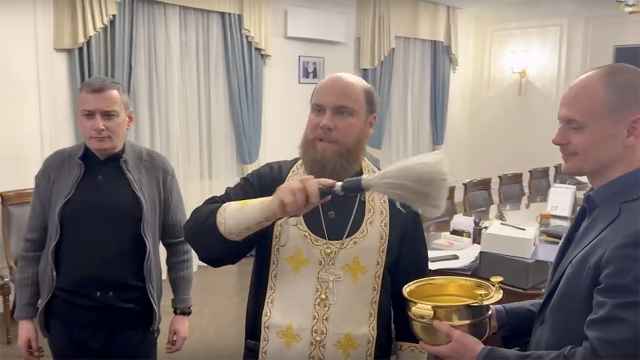Russia is pushing for a greater U.N. role in an investigation into what caused the downing of a passenger plane in eastern Ukraine after dismissing a proposal by Malaysia, Australia, the Netherlands, Belgium and Ukraine for a U.N.-backed tribunal.
Led by the Dutch, the countries are conducting a criminal inquiry into Malaysia Airlines flight MH17 and circulated a draft resolution to the U.N. Security Council earlier this month that would create a tribunal to prosecute those responsible.
But Russian President Vladimir Putin has described the move as counterproductive and premature. Russia is a Security Council veto power and therefore could block the bid if it is put to a vote.
Russia has instead circulated its own rival draft U.N. resolution that would "demand that the perpetrators of the aerial incident be brought to justice." The 15-member council discussed the rival draft resolutions on Monday.
New Zealand Ambassador Gerard van Bohemen, president of the council for July, said it was a "very positive discussion," but noted that the key hurdle was the issue of a tribunal.
"There was strong support in the room for the establishment of a tribunal. Russia of course has a different perspective on this," he told reporters.
Russian U.N. Ambassador Vitaly Churkin said earlier that Moscow was opposed to an international tribunal because "we believe it's not in the U.N. Charter, the U.N. Security Council is not supposed to deal with situations like that."
When asked if Russia was against the tribunal proposal, Churkin said: "Yes." Earlier this month he described the proposal as an attempt to organize a "grandiose, political show."
Flight MH17 was shot down on July 17 last year with 298 passengers on board, two-thirds of them Dutch. It crashed in Ukrainian territory held by Russian-backed rebels. A final report on the cause of the crash, separate to the criminal investigation, is due in October from the Dutch Safety Board.
Ukraine and Western countries accuse the rebels of shooting down the plane with a Russian-made missile. But Moscow has rejected accusations it supplied the rebels with SA-11 Buk anti-aircraft missile systems.
The Russian U.N. draft, seen by Reuters, would request U.N. Secretary-General Ban Ki-moon to report to the council within two weeks on "the steps that would enhance the role of the United Nations in support of the (safety) investigation" and the appointment of a U.N. special envoy on the incident.
It also expresses concern that the ongoing safety investigation has been delayed and "does not ensure due transparency in its organization and work methods, which may have a negative impact on its outcome."
British U.N. Ambassador Matthew Rycroft, also a council veto power, said on Monday: "We don't support the Russian draft."
Malaysia, Australia, the Netherlands, Belgium and Ukraine rejected on Monday the accusations in the Russian draft, saying that both the safety and criminal investigations were being carried out in line with the highest international standards.
The Russian draft resolution asks for those countries to "keep the council fully and regularly informed on the progress" of the criminal investigation. But in a joint statement they said the criminal investigation would remain confidential so any future prosecutions would not be jeopardized.
"It is important for the Security Council to take clear and decisive action against those responsible for the downing of MH17 to send a clear message to the growing number of non-State actors with the ability to target civilian aircraft that such attacks will not be tolerated," the statement said.
Those countries hope to put their draft resolution to a vote this month, diplomats said.
A Message from The Moscow Times:
Dear readers,
We are facing unprecedented challenges. Russia's Prosecutor General's Office has designated The Moscow Times as an "undesirable" organization, criminalizing our work and putting our staff at risk of prosecution. This follows our earlier unjust labeling as a "foreign agent."
These actions are direct attempts to silence independent journalism in Russia. The authorities claim our work "discredits the decisions of the Russian leadership." We see things differently: we strive to provide accurate, unbiased reporting on Russia.
We, the journalists of The Moscow Times, refuse to be silenced. But to continue our work, we need your help.
Your support, no matter how small, makes a world of difference. If you can, please support us monthly starting from just $2. It's quick to set up, and every contribution makes a significant impact.
By supporting The Moscow Times, you're defending open, independent journalism in the face of repression. Thank you for standing with us.
Remind me later.


